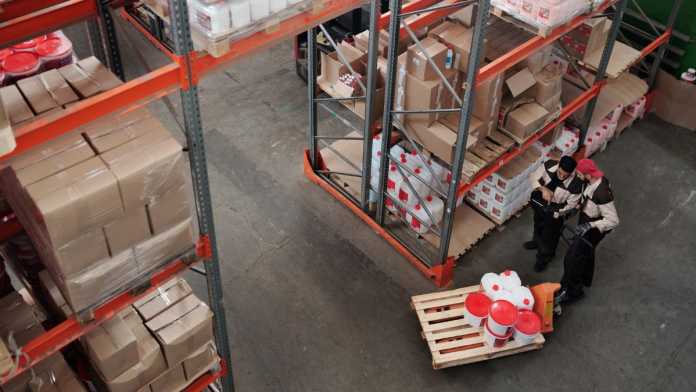eCommerce warehouses serve as storage space and a crucial component of order fulfillment for online sellers. The right type of warehouse for eCommerce could determine your online business’s success or failure. Consequently, examining various eCommerce warehouse types is critical and selecting the appropriate one for your company. An eCommerce warehouse is even more crucial if you want to sell products online globally. Also, if your business is expanding quickly and you need more space to keep your inventory organised. Additionally, you should pick the right type of warehouse for eCommerce to prevent disorganization and business lapses.
According to a report in 2020, the Indian warehousing market was estimated to be worth INR 1050 Bn. And that’s not all; between 2021 and 2025, it is predicted to rise at a compound annual growth rate of 14.86%, reaching a value of INR 2028.86 Bn.
Different Types of Warehouses
Warehouses come in many different forms and sizes. Choose the right type of warehouse for eCommerce according to your business requirements are as follows:
Public Warehouses:
Government entities own public warehouses, which they make accessible to businesses in the private sector. You can rent out public warehouses for both professional and personal purposes. A public warehouse is an excellent alternative to other warehouses for MSME owners who need to store their goods temporarily. They are also the most accessible and affordable solution.
Private Warehouses:
A private warehouse is held privately by manufacturers, wholesalers, or distributors. Additionally, major retail chains and digital marketplaces have their own privately held warehouses.
Bonded Warehouse:
A bonded warehouse is a place to hold and process goods imported into a new market. A bonded warehouse does not charge customs duties on the items kept inside. All applicable duties become due when the items are delivered to their final location. Bonded warehouses, owned by the government or private businesses, can help improve inventory and cash flow. It provides significant benefits to companies that conduct cross-border operations.
Smart Warehouse:
A smart warehouse is a warehouse where AI automates the management, storage, and fulfillment processes. Robots and drones conduct operations like packing, weighing, transporting, and storing items. Smart warehouses use automation to run their business operations. Sorting systems, pick-to-light systems, and collaborative mobile robots are examples of automation in smart warehouses. Automation can also include warehouse and order management software.
Government Warehouse:
These supply chain warehouses, such as seaport storage facilities, are owned and managed by the government. Government storage facilities typically have reasonable prices. However, if a company cannot pay their rent on time, the government has the right to sell the company’s assets to recoup its rent.
Distribution Centre:
A distribution centre is a type of storage facility often created for specific needs. Items quickly move within the supply chain, and storage is used for short-term requirements. Within a short time, sizable quantities of products are received and delivered to resellers and retailers.
Need For eCommerce Warehouses
- Some goods are only created and manufactured during a specific season. Such products require fulfillment warehousing, which also guarantees their availability during the off-season.
- Parallel to this, some goods are produced yearly but only come into demand during certain seasons. In this situation, warehousing is also needed.
- Companies that choose to engage in large-scale production, as well as bulk supply, must also have a warehouse.
- A warehouse helps ensure that product market demand is met rapidly and effectively.
- Warehousing ensures that businesses manufacture things continuously and also assists in tracking the creation of goods and their transportation.
- The government regulates market supply and keeps necessary items in warehouses. Here, warehousing is essential for maintaining price stability.
Conclusion
It’s not difficult to choose a type of warehouse, but it’s essential to do so while taking your business’s demands into account. Roadblocks are to be anticipated as you go through a lot of trial and error. However, with the right type of ecommerce warehouse, scaling your business becomes easier. Once you’ve chosen the right warehouse, all you’ll need to do is maintain increasing sales, and the profits will start rolling in.







